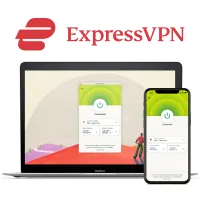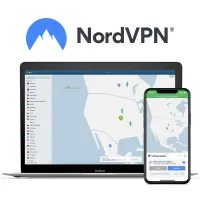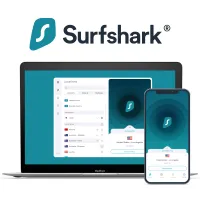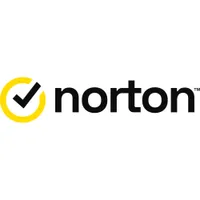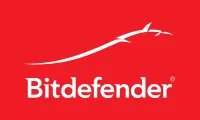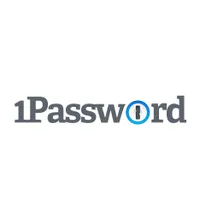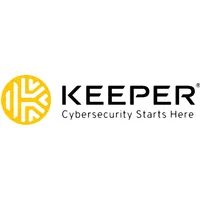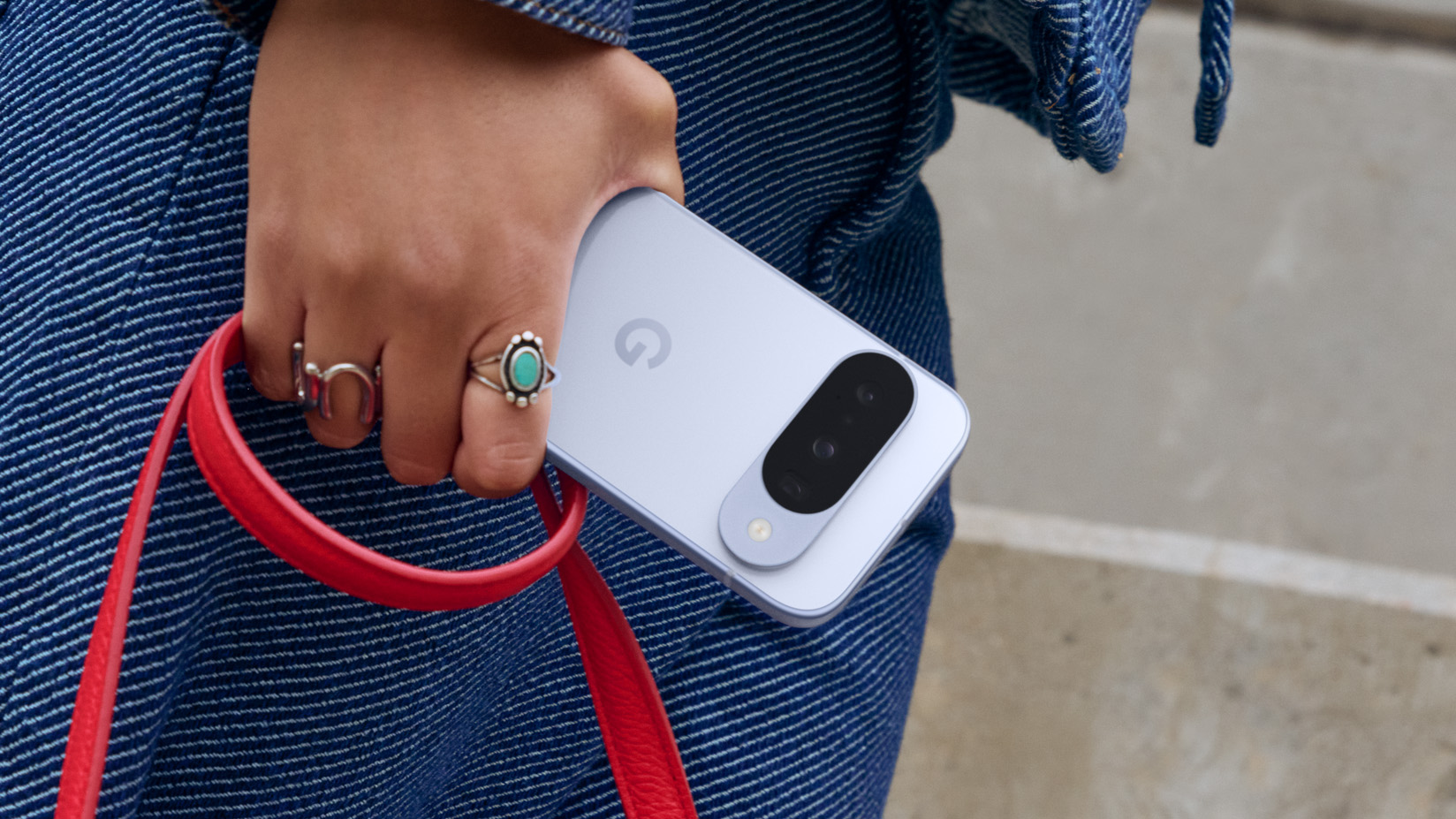The best apps to keep your computer safe in 2025
An expert guide to ensuring you and your new computer stay safe online

Whether you've got a brand-new computer for gaming, work and/or play, you need to protect it (and yourself). Unfortunately, the internet is awash with cybercriminals trying to steal your sensitive information and use it against you, whether this is through financial fraud, identity theft or other cybercrimes.
At Tom's Guide, we've tested the best security software and we believe that a combination of a good VPN, an antivirus, and a password manager is a strong defense against those trying to track your IP or attempting to infect your new computer with malicious software like viruses, malware, or ransomware.
Now, there are hundreds of “security” solutions trying to lure you into buying them but in reality, they don't deliver on their promises. Our Tom's Guide experts have looked beyond their advertised claims, tested them hands-on, and filtered out the best ones for you in this guide.
The best VPN in 2026
A VPN encrypts your internet traffic and gives you a new IP address, making it look like you’re in a different location than your actual, physical one, thereby keeping you protected from hackers, ISPs, and governments, and unblocking content restricted in your region.
We test dozens of providers daily, and these are the best VPNs on the market right now:
1. ExpressVPN: the best VPN – get 3 months free
ExpressVPN has stayed consistently as our number one VPN recommendation. The service keeps impressing us with its rock-solid security, consistent speeds, excellent unblocking, and a massive list of servers spanning the entire world, plus it’s super easy to use.
While it may not be as cheap as some of the others, but Tom’s Guide readers can get incredible value for their money by signing up for Express’s 12-month plan, as it comes with 3 months of extra protection and 1 year of Backblaze’s cloud storage for free—and there’s also a 30-day money-back guarantee in case you change your mind.
2. NordVPN: all-in-one security at blazing speeds
NordVPN is a delight for those after a cost-effective one-stop security package. Starting at just $2.99 a month, Nord gives you tons of extras, such as malware protection and ad-blocking—and its VPN boasts the fastest connection speeds we’ve seen.
As the best Netflix VPN, Nord can give you access to just about every content library, courtesy of its impeccable unblocking capabilities and thousands of servers. Try it out risk-free with a 30-day money-back guarantee.
3. Surfshark: the best cheap VPN on the market
There’s hardly a service that can beat Surfshark when it comes to value for money—you get unlimited simultaneous connections, class-leading speeds that are on par with Nord’s, and easy-to-use apps for less than $2.50 a month.
For day-to-day privacy and streaming, too, there’s not a fault to be found, and Surfshark gives premium providers a run for their money with servers in 100+ countries. A 30-day money-back guarantee allows you to take it out for a test drive and see if it’s the right choice for you.
How to pick a VPN to secure your computer
When selecting a VPN, the first thing you should look for is a VPN provider with excellent security and privacy credentials. Not only should it offer a rock-solid kill switch, strong encryption, and leak protection, but it should also follow a strict no-logs policy—meaning it never stores or shares your personal data with any third parties.
The next most important thing when choosing a VPN is the number of locations on offer. Ideally, the provider you pick should have a massive fleet of servers spread nicely across the world. This way, you will be able to enjoy stable and fast connections from and to the countries of your choice, such as one that's home to your favorite content library.
The number of devices you want to protect is also an important consideration. Providers like Surfshark and Private Internet Access come with unlimited simultaneous connections, allowing you to share the VPN’s security with all your friends and family members.
Next, if you’re on a tight budget and cannot quite grab the best premium providers, we recommend picking one of the best cheap VPNs. Regardless of how much you’re paying, make sure the provider boasts robust customer support with quick response times and in-depth resources.
Using a VPN FAQs
Is it legal to use a VPN?
Whether you can legally use a VPN depends on where you are. While VPNs are legal in most countries around the world, some like North Korea, Turkmenistan, and Iraq have completely banned them.
Then others like China, Oman, Turkey, Russia, and the UAE either allow you to use only government-approved providers or block access to the websites/servers of VPN providers that don't follow its rules.
Are VPNs easy to use?
VPNs come in all sizes, shapes, and forms. While the majority of them are generally straightforward to use, some of them are designed to appeal to the tech-savvy, meaning they may be a little less beginner-friendly.
If you're new to VPNs and would like something simple yet fully functional, we recommend opting for ExpressVPN which boasts an excellent one-click connect function—plus its proprietary Lightway protocol very intuitively and accurately selects the best server and encryption for your needs.
The best antivirus in 2026
The best antivirus software is a must-have for your new computer, as it not only provides potent defense against malware, viruses, and ransomware but also keeps your device running smoothly.
Tom’s Guide experts review top antiviruses across core aspects like ease of use, performance, extras on offer, and value for money. These grabbed the top three spots:
1. Norton: the best antivirus software in 2026
Norton comes packing some of the best malware detection rates and identity theft protection we’ve seen, along with excellent browser security. Additionally, it’s also a go-to choice for all-round protection, thanks to an endless list of extras, including a password manager, a VPN, parental controls, backup software, and more meaning you only need to purchase one solution to get fully protected.
To get maximum bang for your buck, we recommend signing up for Norton’s auto-renewal program which comes with a Virus Protection Promise and a whopping 60-day money-back guarantee.
2. Bitdefender: fast and potent antivirus software with tons of extras
Bitdefender is a force to reckon with when it comes to stopping both new and unknown malware—and it does so at blazing speeds and without any significant impact on your computer’s resources.
There’s a lot to like on the add-ons front as well where you get an app lock, a Wi-Fi scanner, and real-time data breach alerts for everything cybersecurity. Try it out risk-free with a 30-day money-back guarantee and see how it compares.
3. McAfee: the best antivirus for big families
McAfee’s Antivirus Plus and Total Protection Plus are ideal for multi-device protection—so you can protect all of your family members on a single plan.
Plus, with a bundled password manager, identity theft protection, and 24/7 tech support, there’s no shortage of security offerings, either. However, if you also want an unlimited VPN, pick McAfee Total Protection Ultimate.
How to pick an antivirus to secure your computer
The primary task of an antivirus is to identify and eliminate malware, so, needless to say, the malware-detection rate of the provider is a high priority. Bitdefender, Norton, and Trend Micro boast the best malware detection and at the same time, do not churn out a lot of false positives either.
Your new computer deserves the best upkeep, so pick an antivirus solution that’s light on system resources. If you’re not a techie, we highly recommend that you pick an easy-to-use antivirus that allows you to run scans from the home screen. However, if your memo includes deep customization, solutions like Avast that let you fine-tune settings will fit your bill better.
As is the case with any purchase, your budget is pivotal. Although free antivirus products such as Avast Free Antivirus, AVG AntiVirus Free, and Bitdefender Antivirus Free all offer solid malware protection, if you can splurge a little, we recommend opting for higher-tier plans.
This is because premium products come packing tons of extra cybersecurity tools for all-round protection, including parental controls, dark web monitoring, password managers, backup software, identity protection, and online storage, as well as the ability to protect multiple devices simultaneously.
Using antivirus FAQs
Do I really need antivirus in 2024?
Ransomware is more efficient than ever and baddies are still after your info, so yes, you need an antivirus to keep malware, viruses, and other cyber threats at bay that are all getting smarter and more sophisticated.
A good antivirus solution will not only safeguard your personal information from being stolen but can also offer anti-phishing measures, dark web monitoring, and bundled VPN/password manager/parental controls for an added layer of protection for both you and your family members.
Is free antivirus enough?
Free antivirus solutions are more than capable of protecting you from basic threats but premium products come packing extra cybersecurity tools, such as parental controls, backup software, a password manager, and identity theft protection, all included in a single subscription—so you can save a few bucks as well.
The best password manager in 2026
A password manager is an essential part of your digital security toolkit, storing your passwords, passkeys, and other frequently used information from intruders while also cranking up your online accounts’ privacy through strong password generators, identity theft protection, anti-phishing features, and more.
Here are the three best password managers you can consider getting in 2026:
1. 1Password: the best password manager overall
We’ve found 1Password to be the pick of the lot, thanks to a unique Travel Mode feature that protects your passwords while you’re out and about, “masked” email addresses, and keylogging protection.
Also, simple apps/browser extensions and excellent sharing functionalities mean that 1Password is ideal for just about every device type and user—individual or family.
2. Dashlane: the best password manager interface
Dashlane’s intuitive interfaces make it a delight for those new to password managers, and it’s also super secure, courtesy of dark web monitoring, a bundled Hotspot Shield VPN, and one of the best bulk password changers in the industry.
Then there’s a stripped-down free version that’s admittedly limited but can serve as a great starting point if you’re cash-strapped or you want a feel of the platform before committing to a paid plan.
3. Keeper: the best password manager for security
Keeper’s security and convenience are second to none, thanks to One-Time Share for sharing confidential information, biometric access to your passwords on your computer, lots of templates to store various personal documents, and consistent user interfaces.
You can also get started with its free plan that gives you more features than most other free tiers; the only major miss is the ability to sync multiple devices.
How to choose a password manager to secure your computer
The most important decision you have to make is whether you want a cloud-based password manager or one that stores data locally on your device. The former is more convenient and allows you to sync your passwords on all of your devices in real time, while the latter offers a security advantage—your data doesn’t reach the internet giving you full control over it.
It’s worth noting that almost every top password manager can store an unlimited number of passwords, so the extra features offered can help you decide which is the right one for you. Depending on your needs, you may look for a password manager that offers add-ons like data breach alerts, parental controls, or dark web monitoring and/or one that can also store other information such as your credit card details.
Unlike VPNs and antiviruses, the only trustworthy choice we’ve come across in our testing as far as free password managers are concerned is Bitwarden, as it offers premium-level features such as cross-platform synchronization and two-factor authentication without asking for a single penny.
Other important factors include solid customer support and the password manager’s compatibility with the device you wish to use it on. At the same time, all of its apps and browser extensions should be easy to navigate.
Password managers FAQs
What is the difference between free and paid for password managers?
Both free and paid password managers can store an unlimited number of passwords and passkeys and offer the same level of encryption and protection from hacks.
However, premium solutions come with more advanced features such as dark web monitoring, cross-platform synchronization, multi-device support, multi-factor authentication, increased storage, and even a bundled VPN, antivirus solution, and parental control app.
Should you use your browser password manager?
While using your browser password manager is a convenient and free option, you'll have a few limitations thrown at you. For example, Apple’s Keychain password manager cannot be synced with Chrome’s password manager.
The solution? Use dedicated password managers that offer compatible apps and browser extensions for various platforms.
How we test software
We get hands-on with every software we recommend, such as VPNs, antiviruses, password managers, and parental control apps. Our testing methodology equips us to look beyond the marketing blurb you can find on the provider’s website and find out whether it actually works as advertised.
For this, we sign up for the services, download their apps on every single compatible platform, and conduct multiple rounds of testing where we evaluate their features, ease of use, performance, and if they offer good value for their price. While we’re at it, we also draw conclusions on the platform’s design—does it feel premium or cheaply built?
We’re aware of the pain of picking the wrong software, which is why we ensure that we only recommend the best tools in the industry. We do not take payments for software reviews, our opinions are based on extensive testing, and if a product doesn’t live up to the hype, we’ll tell you why.
Also, we constantly update our buying guides, chopping and changing the order and even replacing a few tools if need be—all to make sure that our reviews are, at all times, accurate and relevant.
Get instant access to breaking news, the hottest reviews, great deals and helpful tips.

Olivia joined Tom's Guide in October 2023 as part of the core Tech Software team, and is currently VPN Commissioning Editor. She regularly uses VPNs to make sure they deliver what they promise, and specializes in testing VPNs with streaming sites.
- Krishi ChowdharyContributor
 Club Benefits
Club Benefits





